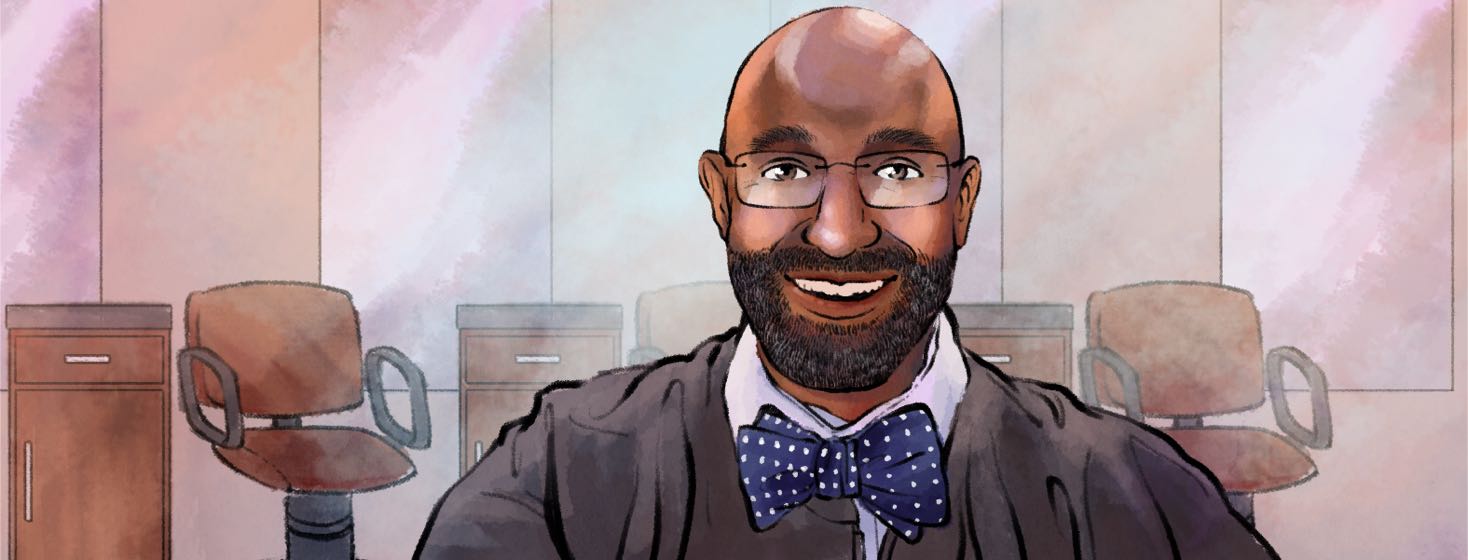Waverly Willis Raises Prostate Cancer Awareness in Barbershops
Waverly Willis is a cancer survivor and part of a project in Ohio to raise prostate cancer awareness in his and other barbershops. He talks about his involvement in Case Western Reserve University's (CWRU) Cleveland African American Prostate Cancer Project, and how he mixes prostate cancer into conversations about daily life and sports.
How has cancer impacted you?
Cancer has impacted my life in several ways. I was one of those “that will never happen to me” kind of people. I do not know why my mindset was like this, being that I have several direct relatives, my mother included, that had been diagnosed with cancer.
When I found out I had cancer, I thought a practical joke was being played on me. Today I know that I am not exempt from cancer or any other illness that can affect me, and I struggle daily to combat the bad habits that cause them.
How has cancer – specifically prostate cancer – impacted your clients?
Unfortunately, I can comfortably say all of my extensive Black clientele have directly or indirectly been affected by prostate cancer. Many have had close relatives, or even themselves been diagnosed with it. We all have friends or distant relatives this disease has touched.
Why are barbershops a good place to talk about men's health?
The barbershop has been a meeting place for men since Egyptian, Greek, and Roman days through to the present day, and will continue to be. It is familiar ground that men are comfortable in. This type of organic environment is important because it brings about honest and candid conversations regarding life. There is no place like the barbershop for men.
Barbershops are a good place to have men’s health conversations because we share what we are going through in this safe space where there is no judgment. After one person shares, it makes it easier for the next and so on.
How have you brought healthcare professionals into barbershops?
Prior to the CWRU Cleveland African American Prostate Cancer Project, I formed partnerships with Cleveland Clinic, the American Heart Association, and Cleveland State University’s Neo Med Program. We had healthcare students and professionals come into all of my Urban Kutz Barbershop locations to provide blood pressure checks for clients and people in the neighborhood.
The goal was to screen, educate, and refer people, ultimately resulting in people having a lasting relationship with their own medical doctor. On more than 5 occasions, someone's blood pressure numbers were so high that we had them skip the haircut to instead made a beeline to the emergency room.
Regarding the CWRU board, I helped to organize and implement a barbershop listening tour that resulted in the board receiving a $2.1-plus million grant from the Bristol Myers Squibb Foundation to lead a Northeast Ohio initiative to increase prostate cancer screening in African American men.
How do you convince men to see a doctor?
The barbershop can be a difficult place to have men go to the doctor, but it is also the place where health experiences are shared by the men that put it off. Now, men may have one less toe or are on an oxygen machine. These shared life stories usually convince hesitant men to make that appointment.
This is why through my nonprofit The Urban Barber Association (TUBA) we do our best to bring the doctor to men inside the barbershop. Other times the other barbers and I are intentional when we squeeze stories about our own health or doctor visits in between conversations about the Browns or the Cavs. Once we share, normally they share.
Why is it important to raise awareness about prostate cancer?
It is important to raise awareness about getting screened because a screening is a variable that can be controlled. Black men have variables that cannot be controlled like their environment or hereditary issues. Controllable variables like diet, exercise, and screenings can put a huge dent in the disproportionate numbers.

Join the conversation